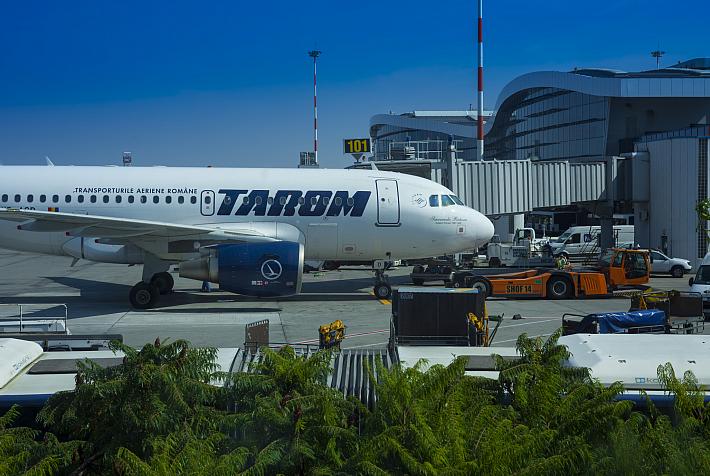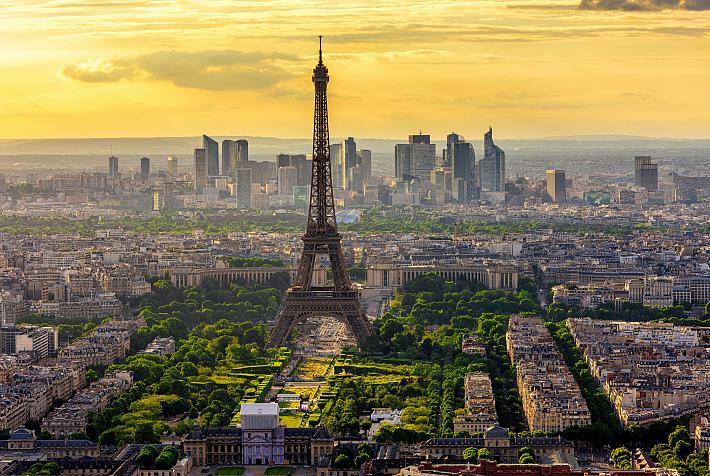Romania from the outside: Make me laugh or cry

Guest writer Leon Schnell has read his fair share of boring Romanian news stories in English, and received a worrying number of dire warnings.
“As for the salaries, don't expect too much. I don't know which is your motivator to come to Romania, but my friendly advice would be to refrain, if you are not obliged to come.” [sic]
That welcoming message was sent to me by a Romanian citizen, in response to a question over an international social network about salaries in Bucharest.
I recall another message, also sent to me by a native Romanian, literally begging me to not move to Romania, because the situation was apparently so dire in the country.
Then most recently, I engaged in conversation with a guy living in Bucharest who I took for a foreigner, given his repeated negative and even derogatory sentiments expressed about Romanians.
Here’s an example of one of the things he said:
“The people in Romania are stupid, rude and hypocrite (maybe the worst people in Europe), and one of the worst places from this p.o.w. is Bucharest. For me this not a problem anymore, because I understood that they're just very limited and their behavior doesn't affect me anymore, so if somehow you manage to move to Romania, I think you can have a good time if you realize how deprived they were and are (because of isolation during Iron Curtain), in other words that they're not a threat, only seem sometimes.” [sic]
When I asked him what nationality he was, his answer might surprise you. British? German? American?
“I'm Romanian, living in Bucharest. It is common among Romanians to criticize Romanians in general, there is a say, "Romania is a beautiful country, too bad that is inhabited".” [sic]
Well, isn’t that just what every prospective immigrant wants to hear? One bit of ‘good’ news, however, is this quote: “The characters of Romanians are that way that as long you don't speak their language they fear you but after you learn it, they consider you one of them and make your life hard. I've read this on the blog of a former expat.” [sic]
So much for the Pimsleur Romanian lessons I was trying to plow through, then. I’d rather have fear than a hard life, I think?
One thing I have noticed, however, is that there is very little in the way of Romanian humor in English on the Internet, and for the most part sensationalism is completely avoided in news stories. This makes most news sites – Romania-Insider.com excluded, of course – for lack of a better phrase, intensely boring.
Here’s a typical South African news website. At the time of writing, emotive headlines jump off the South African page. ‘Twin blasts’; ‘ gunned down’; ‘tough times’; ‘gang raped’; ‘crackdown’; ‘blamed’; ‘dumps’; ‘panic’; ‘game-changer’.
English-language Romanian news websites, however, are dominated by bland acronym-heavy headlines, political stories and a very shallow approach to complex news stories.
When I ask myself why this is, there are three possibilities which spring to mind. The first is that Romania doesn’t have a lot of crime, so newspapers don’t have a lot of ‘juicy’ hard news of the ‘if it bleeds it leads’ variety to report. The second is that post-Communist era journalists don’t feel free to scrutinize ‘personal’ problems, rather defaulting to an organizational analysis.
The third, however, is that – judging by the staff lists – the majority of these English-language reporters are in fact Romanian. While some undoubtedly speak English better than others, the overriding problem is that you cannot appreciate a language’s nuances unless you’re at the level of a native in it.
Where English is a second or third language for these journalists, I just don’t think they’re trying to enjoy themselves by finding clever puns or emotive words: they’re rather mentally translating a story in their heads from Romanian into English as functionally and accurately as possible.
Whatever combination of these three factors results in the news as we have it, it creates a distorted and dehumanized lens through which English-speaking foreigners read about Romania. When foreigners do try to break through this lens and reach ‘real Romanians’, they then end up receiving feedback like I did above.
The net result is the impression of a bleak and humor-free society. Where are the Romanian comedians, sharing their jokes in English? Where are the stories profiling common Romanians, and their hopes and dreams? Where are the ‘vox pop’ quotes from average Romanians giving their views included as part of the English-language news stories? Where's the risque gossip?
Without the voices and faces of its people, all Romania is left with on the English international stage is photos of its haunting architecture, strutting politicians and a grandiose background of natural beauty. It’s a cold and bleached landscape, dotted with the odd photo of a covrigi or an old man and his bull.
Romania, this needs to change. I'm not talking about 'Westernizing' the country: I'm talking about accurately reflecting yourself on the global stage in an accessible and honest manner. If we think about America, we think about cowboys and Californian surfers. If we think about Japan we think about ninjas. If we think about the UK, we think about the Queen. If we think about Romania, give us something more to think about than a headline about the latest political squabble.
If you prick us, do we not bleed?
If you tickle us, do we not laugh? If you poison us,
do we not die? And if you wrong us, shall we not revenge?
If we are like you in the rest, we will resemble you in that. (Shakespeare)












